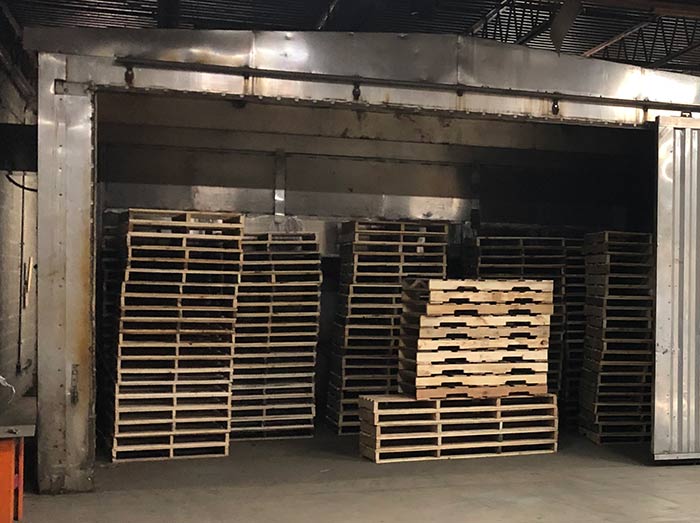Heat-treated pallets are the safest type of pallet. Treating pallets with heat destroys insects, reduces moisture, and helps facilitate the handling process, all without the need for harsh and toxic chemicals. In accordance with a treaty from the International Phytosanitary Protection Convention (IPPC), all pallets shipped to a member country must be heat treated and stamped with an IPPC stamp.
Our heat-treating process
Our process for treating pallets is completely compliant with the International Standards for Phytosanitary Measures (ISMP15) to guarantee safety. Pallets reach an internal temperature of 133°F for 30 minutes, then are inspected for quality and stamped.

